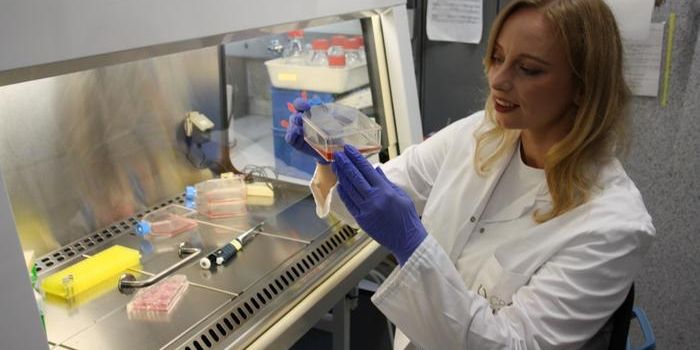A Cancer-Promoting Mutation is Found in 'Junk' DNA
Proteins are the building blocks of life, and our DNA contains the instructions for making those proteins - there are around 20,000 of them. However, there is a lot of other genetic material in our genome that doesn’t code for protein. Scientists have been trying to learn more about what the many non-coding regions of the genome do. Once referred to as 'junk' DNA, scientists are beginning to recognize its importance. Now researchers at the Ontario Institute for Cancer Research (OICR) have discovered a mutation in the non-coding portion of our DNA that can promote the development of cancer.
The investigators have learned more about this mutation and their findings have been reported in two studies in Nature. The work may lead to the creation of new therapeutics that target this mutation, for treating blood, brain, and liver cancers, which can be challenging to medicate.
"Non-coding DNA, which makes up 98 percent of the genome, is notoriously difficult to study and is often overlooked since it does not code for proteins," noted study co-leader Dr. Lincoln Stein, the Head of Adaptive Oncology at the OICR. "By carefully analyzing these regions, we have discovered a change in one letter of the DNA code that can drive multiple types of cancer. In turn, we've found a new cancer mechanism that we can target to tackle the disease."
The genetic mutation, called U1-snRNA, was identified in tumor samples from patients with certain types of brain cancer, and was present in nearly every sample taken from cases of sonic hedgehog medulloblastoma, as well as the most common kind of adult leukemia, called chronic lymphocytic leukemia (CLL), and the most prevalent type of adult liver cancer, hepatocellular carcinoma.
The scientists suggested that the U1-snRNA mutation may be interfering with the splicing of RNA. In cells, protein-coding gene sequences are transcribed into RNA, which then gets processed in a variety of ways, such as by splicing, before it's used to make the protein. Dysfunction in that process can lead to aberrant proteins, which can cause health problems, such as by changing how many genes involved in cancer are transcribed.
One potential new treatment approach might be to repurpose drugs that are already available to target this problem.
"Our unexpected discovery uncovered an entirely new way to target these cancers that are tremendously difficult to treat and have high mortality rates," said study co-leader Dr. Michael Taylor, Paediatric Neurosurgeon, Senior Scientist in Developmental and Stem Cell Biology and Garron Family Chair in Childhood Cancer Research at The Hospital for Sick Children (SickKids). "We've found that with one 'typo' in the DNA code, the resultant cancers have hundreds of mutant proteins that we might be able to target using currently available immunotherapies."
"This discovery is an example of how OICR is working together with partners in Ontario and across the world to support cutting-edge research that can be used in the development of precision therapies for cancer patients worldwide," added Dr. Laszlo Radvanyi, President and Scientific Director of OICR.
Learn more about clinical cancer genomics at OICR from the video above, and genetic mutations that affect RNA splicing from the video below.
Sources: AAAS/Eurekalert! via Ontario Institute for Cancer Research, Shuai et al Nature 2019, Suzuki et al Nature 2019









